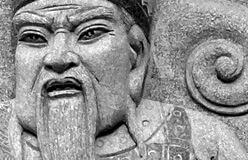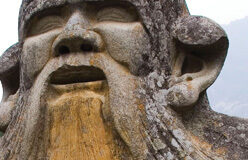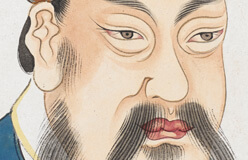When the Zhou dynasty collapsed in 256 BCE, the three main kingdoms that remained—the Qui, the Chu, and the Qin—fought one another for control.
The Qin won in 221 BCE. Their king, Ying Zheng, named himself Shi Huangdi, first emperor of Qin. An emperor rules a large territory made up of different peoples. Despite the fact that the Qin dynasty lasted only 11 years, it gave its name to the modern nation of China. Ch’in is another way of writing Qin. The Qin established the system of government that Chinese dynasties followed for the next two thousand years.








